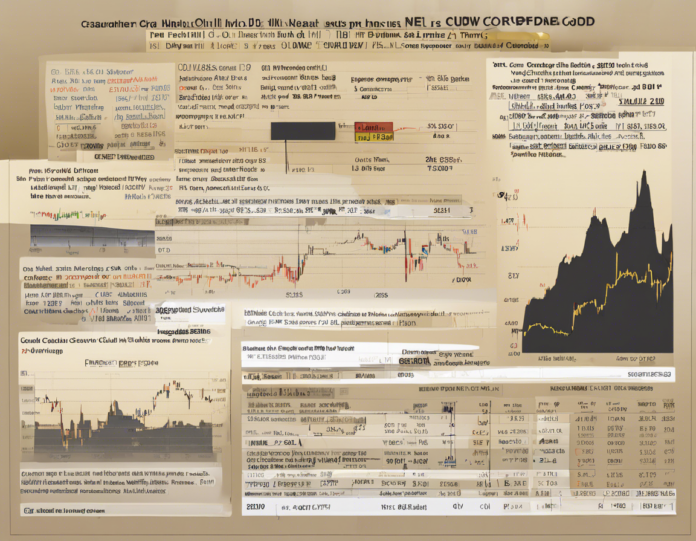Crude oil is a critical commodity that drives the global economy. Every fluctuation in its price has a ripple effect on various industries and consumers worldwide. Staying informed about the latest crude oil news is crucial for investors, traders, policymakers, and anyone interested in understanding the dynamics of the energy markets. This comprehensive article provides updates and insights on recent developments in the crude oil sector, including price movements, market trends, geopolitical factors, and the impact of current events on supply and demand.
Understanding Crude Oil: Key Facts and Figures
Before diving into the latest news and updates, it's essential to establish a foundational understanding of crude oil. Here are some key facts and figures to set the stage for our discussion:
1. What Is Crude Oil?
- Crude oil is a naturally occurring fossil fuel composed of hydrocarbon deposits found beneath the Earth's surface.
- It is a primary source of energy that can be refined into various products such as gasoline, diesel, jet fuel, and petrochemicals.
2. Global Production and Consumption
- The top crude oil-producing countries include the United States, Saudi Arabia, Russia, and Canada.
- The largest consumers of crude oil are the United States, China, and India.
3. Price Determinants
- Crude oil prices are influenced by factors such as supply and demand dynamics, geopolitical tensions, economic indicators, and environmental policies.
Recent Developments in the Crude Oil Market
1. Price Movements
Crude oil prices are notorious for their volatility, and recent months have been no exception. In early 2021, prices surged as the global economy began to recover from the impact of the COVID-19 pandemic. However, concerns about renewed lockdowns in some regions and uncertainties surrounding vaccine distribution have led to price fluctuations.
2. OPEC+ Production Cuts
The Organization of the Petroleum Exporting Countries (OPEC) and its allies, collectively known as OPEC+, have been implementing production cuts to stabilize prices and rebalance the market. The group's decisions regarding production levels have a significant impact on global oil prices.
3. Geopolitical Tensions
Geopolitical factors can have a profound effect on crude oil prices. Recent tensions in the Middle East, including conflicts in Syria and Yemen, have raised concerns about supply disruptions. Additionally, political developments in oil-producing countries such as Venezuela and Iran can impact global oil markets.
4. Energy Transition
The energy transition towards renewable sources of energy poses a long-term challenge to the crude oil industry. As countries set ambitious targets to reduce carbon emissions and mitigate climate change, the demand for oil is expected to decline in the coming years.
Outlook and Future Trends
Looking ahead, several trends are likely to shape the future of the crude oil market:
-
Renewable Energy Transition: The shift towards renewable energy sources will continue to put pressure on the oil industry to adapt and innovate.
-
Supply Chain Resilience: The COVID-19 pandemic exposed vulnerabilities in global supply chains, prompting companies to reevaluate their sourcing strategies and logistics operations.
-
Digital Transformation: Technology is playing an increasingly significant role in optimizing oil exploration, production, and distribution processes.
Frequently Asked Questions (FAQs)
1. How do geopolitical tensions affect crude oil prices?
Geopolitical tensions in oil-producing regions can lead to supply disruptions or concerns about future production, causing volatility in crude oil prices.
2. What role does OPEC play in the crude oil market?
OPEC is a cartel of oil-producing countries that aims to coordinate oil production levels to stabilize prices and ensure a steady income for member countries.
3. How does the energy transition impact the future of crude oil?
The increasing focus on renewable energy sources and efforts to reduce carbon emissions are expected to reduce the long-term demand for crude oil.
4. What are the major challenges facing the crude oil industry in the coming years?
Challenges such as environmental regulations, shifts in consumer preferences, and competition from alternative energy sources pose significant hurdles for the crude oil industry.
5. How can investors navigate the volatility of crude oil prices?
Investors can employ various strategies such as diversification, hedging, and staying informed about market trends to manage the risks associated with investing in crude oil.
In conclusion, staying abreast of the latest crude oil news is essential for anyone with an interest in the energy markets. By understanding the factors influencing crude oil prices, market trends, and future developments, stakeholders can make informed decisions and navigate the complexities of this critical commodity.


Recent comments